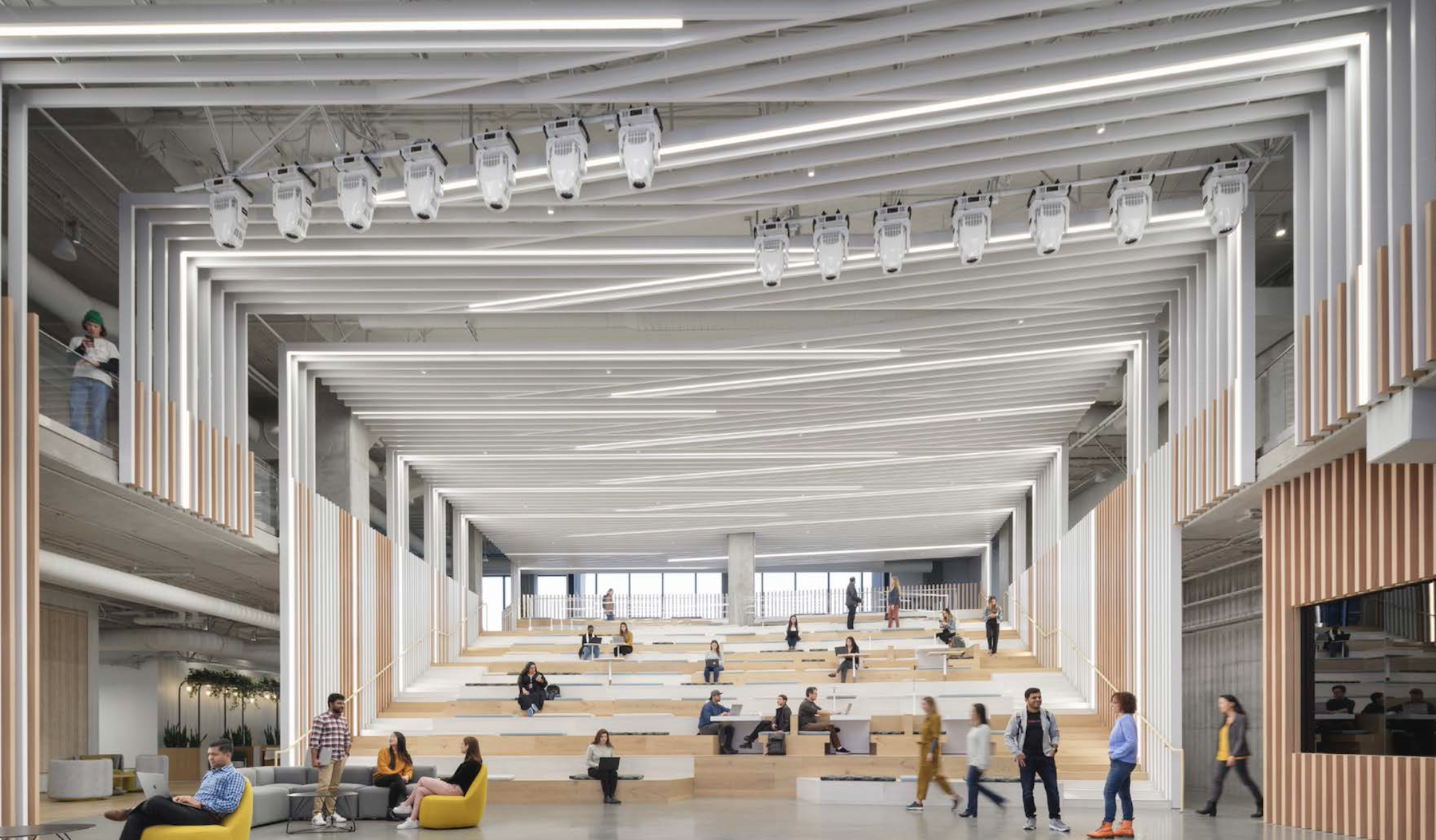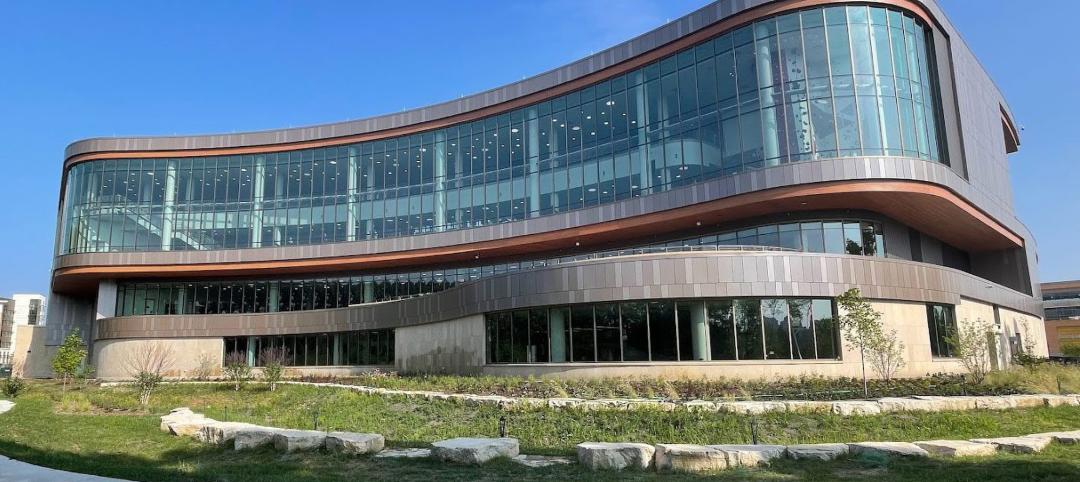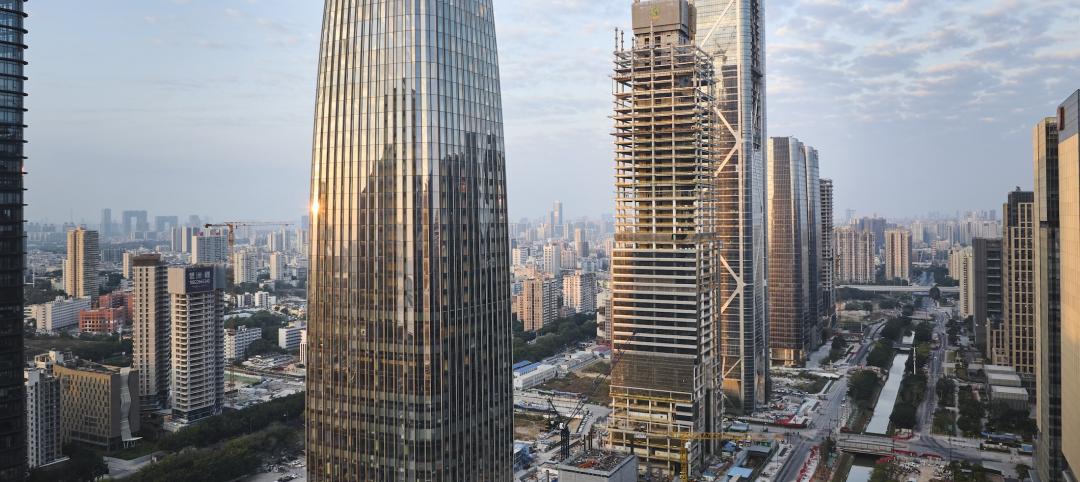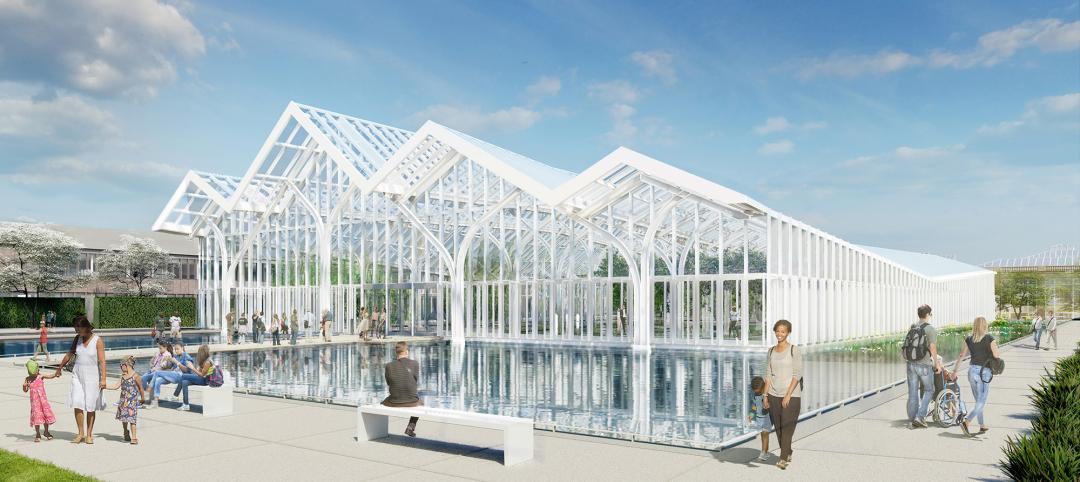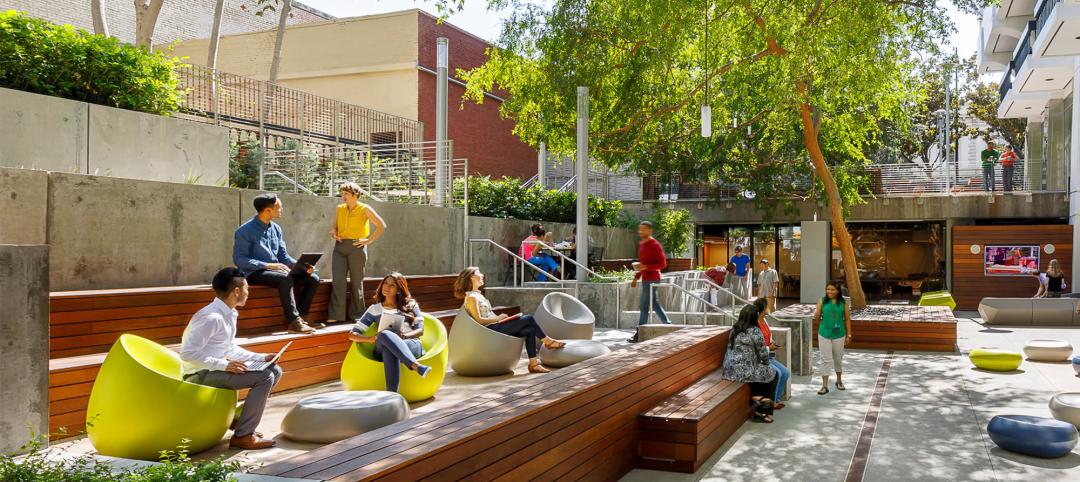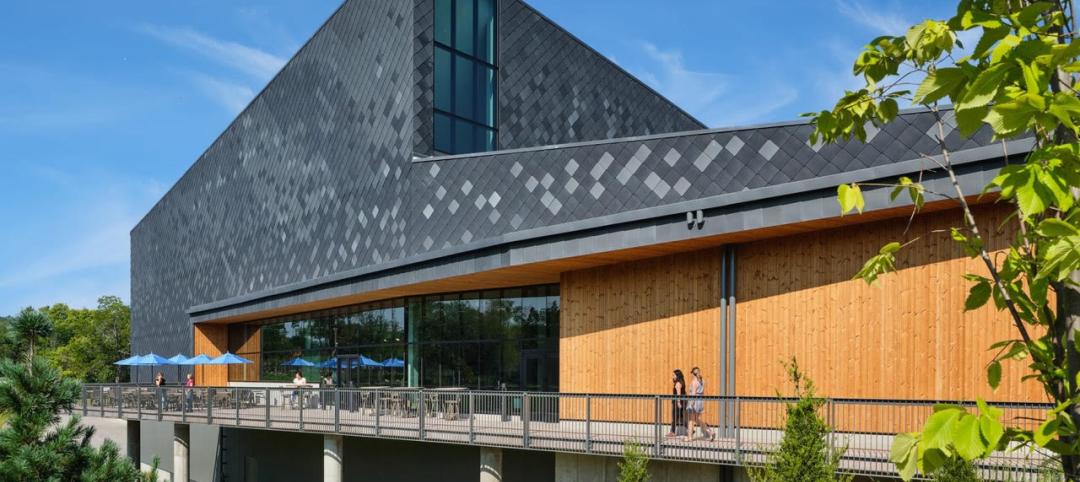The future of cities as work-live-play destinations is a focal point of Gensler’s Design Forecast 2024, which the architectural firm released earlier this month.
The 166-page report (which can be downloaded from here) draws on the extensive design work from Gensler’s practices, which in 2023 increased by four— Build to Suit & Headquarters, Entertainment, Industrial & Logistics, and Mobility & Transportation—to 33, and its 53 offices in 16 countries. Gensler summarizes its thesis when it urges the construction industry to “redesign our cities, rethink how people connect, and address mobility problems, climate change, infrastructure, and housing.”
The report lays out eight mega design trends that Gensler believes are driving significant change:
•In 2024, real estate leaders will find success reclaiming human connection with “experience multipliers”: immersive designs that inspire loyalty, boost sales, and improve vibrancy with a shared sense of and belonging.
•Office-to residential conversions and other creative repositioning will represent a new value proposition for the building industry.
•As intense weather and climate change assail the built environment, sustainable design shifts from an option to an obligation.
•Workplaces need to transform themselves into compelling destinations. As more organizations understand that the workplace landscape has permanently changed, the focus will shift less on how many people come into the office and more on what the future of work looks like to support their people’s needs.
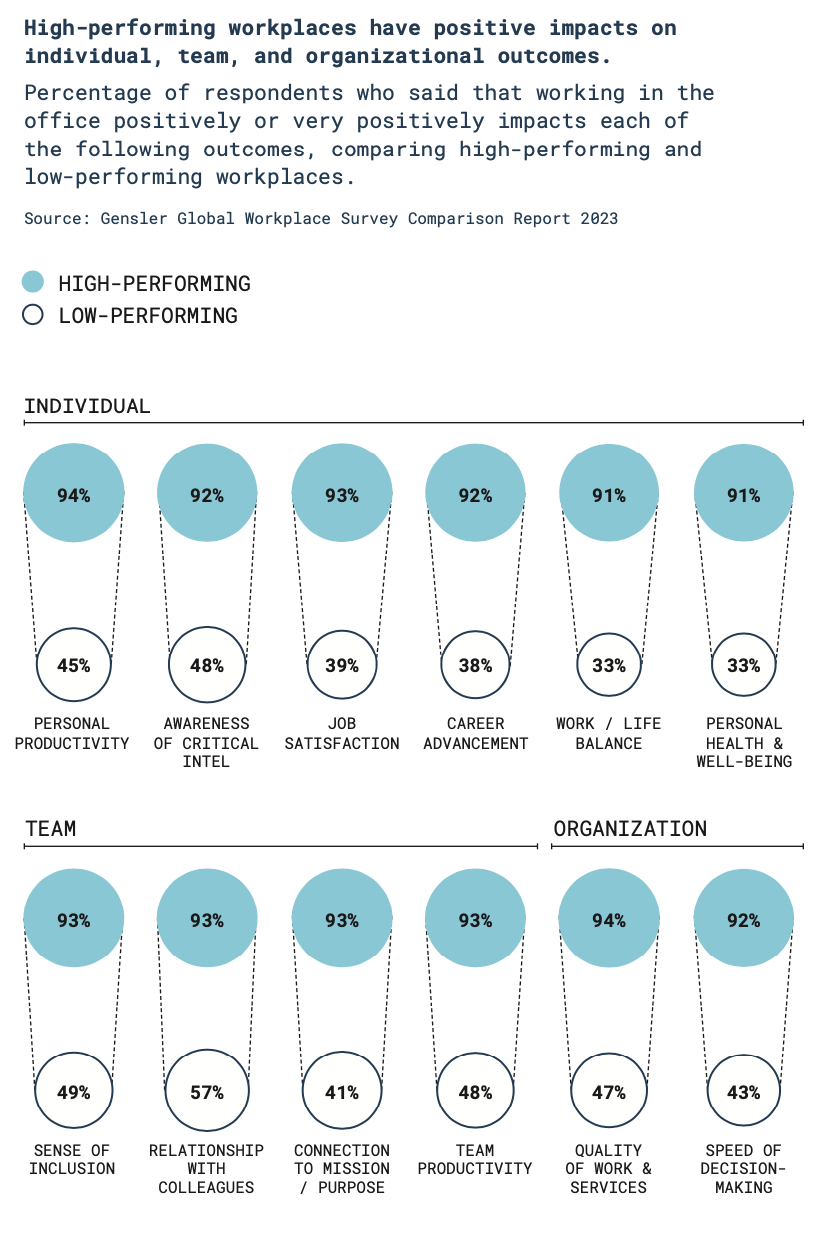
•Office-focused downtowns are a thing of the past. By prioritizing safety and mobility in new multimodal districts, cities can attract residents and tourists and bring COVID-impacted neighborhoods back to life.
•Artificial Intelligence (AI) will open the door to new ideas, new talent, and new creative opportunities. The result will produce buildings that are more sustainable, better performing and responsive to individual needs.
•There continues to be a shift toward designing ageless communities that foster accessibility and affordability.
•The advent of “20-minute cities” is making central districts more lifestyle oriented.
The report breaks down its design forecasts into four groups: Work, Cities, Lifestyle, and Health, each with multiple subsections for different building types and occupants. For example, in the section about Designing for the Future Workplace, Gensler touches on office building developers, building transportation, build-to-suit and headquarters, financial services firms, professional services firms, consumer goods companies, technology companies, energy companies, foundations/associations/organizations, product development, government and defense agencies, media companies, and strategy services.
Gensler advises developers that tenants will continue to migrate to high-quality workplaces in vibrant urban communities, and that long-term sustainability remains a priority for tenants and investors. “We must design spaces that are agile enough to endure future challenges and flexible enough to rapidly evolve with the changing demands of the workplace,” the report states.
In its section on office-to-residential conversions, Gensler notes that it had studied over 1,000 buildings in more than 120 cities, and found just under one-third of them viable conversion candidates. The firm asserts that 3.3 billion kilograms of carbon would be saved if all of those prospects were converted.
“We are in an incredible moment of change and opportunity,” wrote Kevin Heinly, Global Work Sector Co-Leader in Gensler’s San Diego office. “We need a workplace experience that provides seamless technology that better serves our communities; that is bold on resilience; and that is designed to enhance our humanity, health, and our whole selves.” Janet Pogue McLaurin, Global Work Sector Co-Leader in Washington, D.C., added that the office “is no longer assumed to be the default place to work for most employees—today’s workplace must make its case for being a better and more effective place to work. Ultimately, the future workplace must be a compelling destination where people want to be. But most important, the workplace must be an effective place to work, where individuals and teams do their best work.”
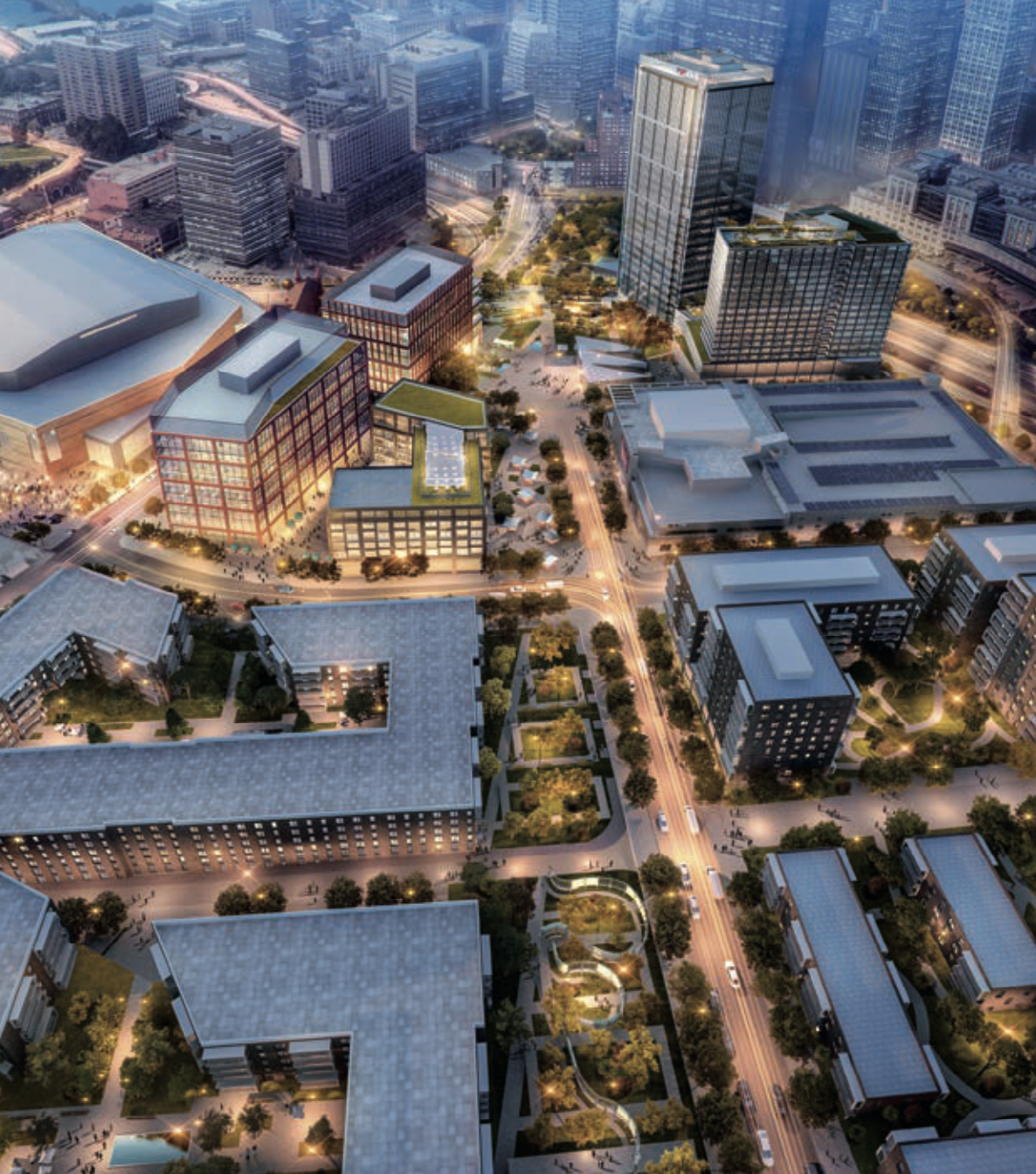
Renovation will be a key design prerogative
Gensler’s report continues in this vein, offering trends for different typologies. Some samples:
Gensler sees a rapid evolution of general urban master planning toward specialized city design that can meet blended work-life demand. The firm is confident that the chronic shortage of affordable housing can be met through strategic partnerships with nonprofit developers. And that investment in adaptation strategies will increase the profitability and desirability of urban real estate.
In Higher Education, on-campus renovations and reuse have become key development strategies. As hybrid learning becomes an expectation, institutions will find new ways to support different methods that include “hyflex” (which combines onsite and virtual instruction). The benefits of social connection and wellbeing are leading to new types of amenities.
The AI “goldrush” will drive the Mission Critical sector to new growth and designs, including sustainable options for more efficient operations. Existing data centers will be ripe for renovation.
Retailing that mixes the physical and virtual
Among the market sectors that Gensler evaluates in its Lifestyle chapter is Retail and Consumer Experience. Gensler isn’t ready yet to write off bricks-and-mortar stores, and believes that “blending, not bifurcation” from ecommerce and digitization is the formula for consumer engagement. “Hypercuration” will elevate the role of physical space.
Demand will continue for mixed-use retail developments that are anchored by sports and entertainment venues. Public spaces programmed as community catalysts will be market differentiators.
“Retail’s new purpose is wider, deeper, and more enduring than just transactions between buyers and sellers,” wrote Aaron Birney, Global Lifestyle Sector Co-Leader in Gensler’s Los Angeles office. “It’s about establishing a place, both physical and virtual, where customers feel valued and understood as part of a community. Brands are thinking about quality engagement across every outpost where they connect with their end users, including online, in store, through social media, or with a pop-up location.”
Comparatively, the digital experience will be driven by data intelligence and AI that further personalizes shopping and operational efficiency. Gensler foresees physical-digital ecosystems creating experiences in a hybrid future.
Technology will guide health sector
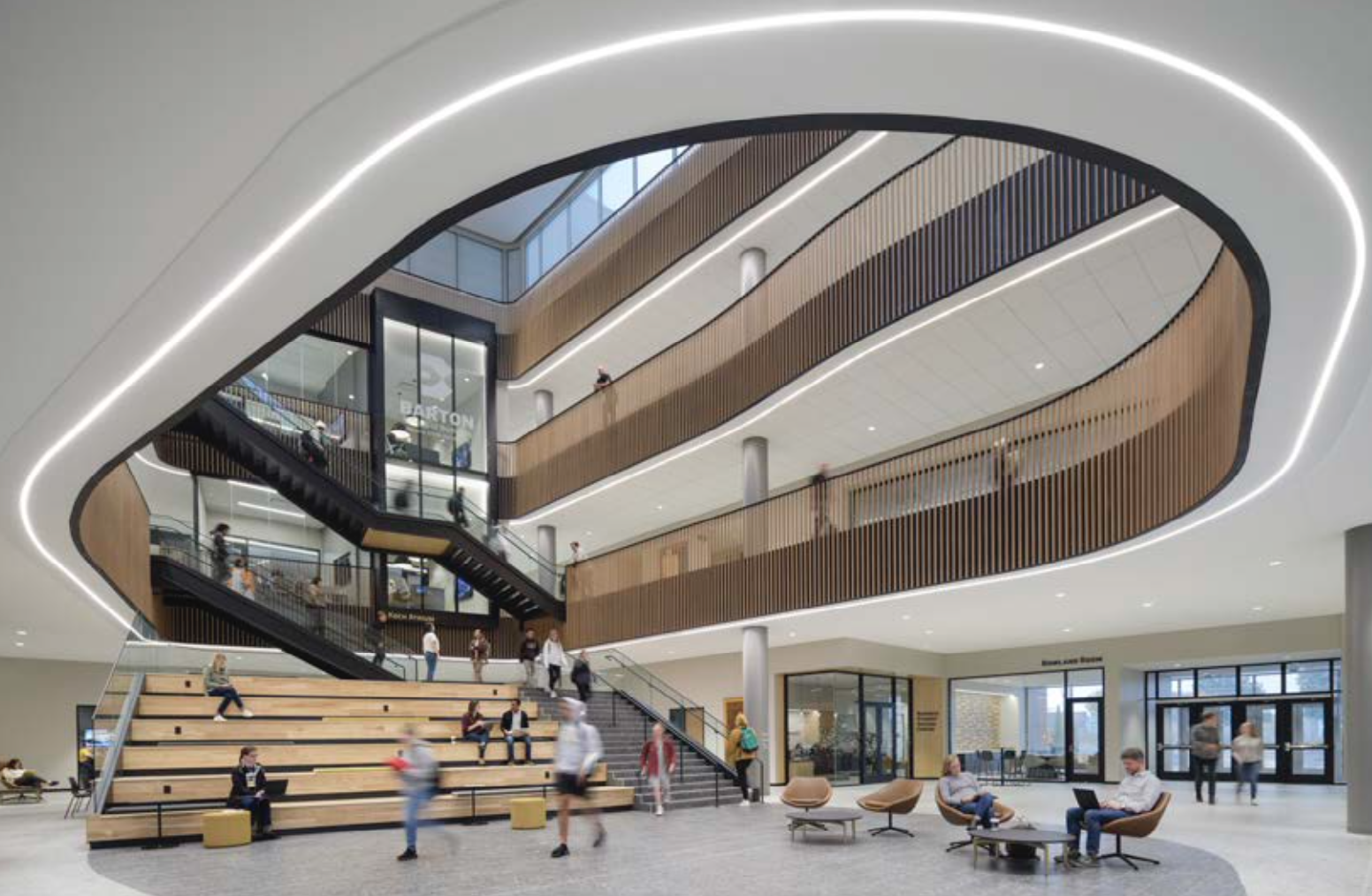
AI is also expected to play a bigger role in the Health sector and its future design. Gensler sees advances in AI, robotics, and other technologies requiring new collaborative spaces that accommodate multidisciplinary research, as well as specialized, small-scale manufacturing that can accelerate scientific innovation.
“We now stand at the precipice of the next science workplace—that amplifies how the science and tech sectors come together to capitalize on their power, not as singulars but as a convergence of forces,” said Chad Yoshinobu, Global Healthcare Sector Co-Leader in Gensler’s Seattle office.
Healthcare operators will also adopt AI to manage administrative tasks and lower the cost of care. Gensler anticipates a rise in mixed-use healthcare districts as rural hospitals continue to close, so establishing trust with those communities will be an imperative.
“Healthcare occupies an interesting place in most communities and is uniquely positioned to help heal some of the wounds and bridge divides,” wrote James Crispino, Global Healthcare Sector Co-Leader in Gensler’s New York office. “If we thoughtfully reimagine our approach to community engagement, clinical services distribution, and partnership models, we have an opportunity not only reshape outcomes but also build trust.”
Related Stories
Sports and Recreational Facilities | Apr 2, 2024
How university rec centers are evolving to support wellbeing
In a LinkedIn Live, Recreation & Wellbeing’s Sadat Khan and Abby Diehl joined HOK architect Emily Ostertag to discuss the growing trend to design and program rec centers to support mental wellbeing and holistic health.
Office Buildings | Apr 2, 2024
SOM designs pleated façade for Star River Headquarters for optimal daylighting and views
In Guangzhou, China, Skidmore, Owings & Merrill (SOM) has designed the recently completed Star River Headquarters to minimize embodied carbon, reduce energy consumption, and create a healthy work environment. The 48-story tower is located in the business district on Guangzhou’s Pazhou Island.
K-12 Schools | Apr 1, 2024
High school includes YMCA to share facilities and connect with the broader community
In Omaha, Neb., a public high school and a YMCA come together in one facility, connecting the school with the broader community. The 285,000-sf Westview High School, programmed and designed by the team of Perkins&Will and architect of record BCDM Architects, has its own athletic facilities but shares a pool, weight room, and more with the 30,000-sf YMCA.
Market Data | Apr 1, 2024
Nonresidential construction spending dips 1.0% in February, reaches $1.179 trillion
National nonresidential construction spending declined 1.0% in February, according to an Associated Builders and Contractors analysis of data published today by the U.S. Census Bureau. On a seasonally adjusted annualized basis, nonresidential spending totaled $1.179 trillion.
Affordable Housing | Apr 1, 2024
Biden Administration considers ways to influence local housing regulations
The Biden Administration is considering how to spur more affordable housing construction with strategies to influence reform of local housing regulations.
Affordable Housing | Apr 1, 2024
Chicago voters nix ‘mansion tax’ to fund efforts to reduce homelessness
Chicago voters in March rejected a proposed “mansion tax” that would have funded efforts to reduce homelessness in the city.
Reconstruction & Renovation | Mar 28, 2024
Longwood Gardens reimagines its horticulture experience with 17-acre conservatory
Longwood Gardens announced this week that Longwood Reimagined: A New Garden Experience, the most ambitious revitalization in a century of America’s greatest center for horticultural display, will open to the public on November 22, 2024.
Office Buildings | Mar 28, 2024
Workplace campus design philosophy: People are the new amenity
Nick Arambarri, AIA, LEED AP BD+C, NCARB, Director of Commercial, LPA, underscores the value of providing rich, human-focused environments for the return-to-office workforce.
Office Buildings | Mar 27, 2024
A new Singapore office campus inaugurates the Jurong Innovation District, a business park located in a tropical rainforest
Surbana Jurong, an urban, infrastructure and managed services consulting firm, recently opened its new headquarters in Singapore. Surbana Jurong Campus inaugurates the Jurong Innovation District, a business park set in a tropical rainforest.
Cultural Facilities | Mar 27, 2024
Kansas City’s new Sobela Ocean Aquarium home to nearly 8,000 animals in 34 habitats
Kansas City’s new Sobela Ocean Aquarium is a world-class facility home to nearly 8,000 animals in 34 habitats ranging from small tanks to a giant 400,000-gallon shark tank.


